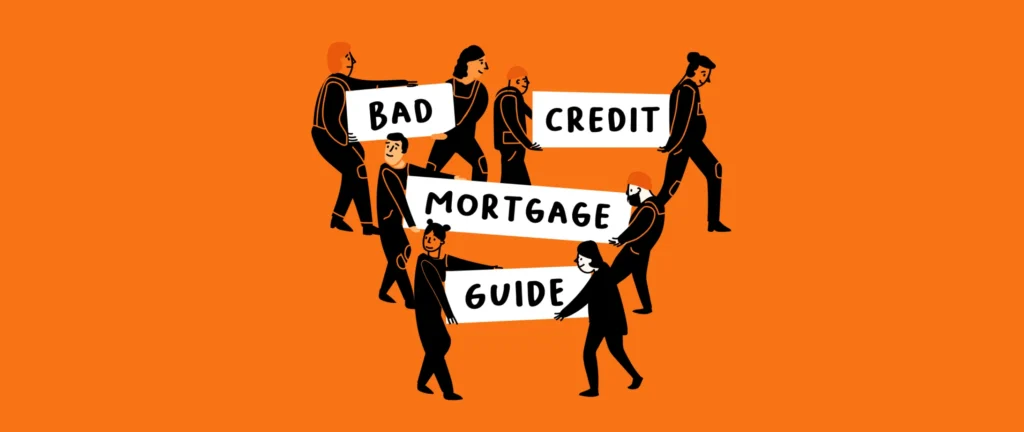Securing a mortgage can be challenging, but it becomes even more difficult when you have a poor credit history. A low credit score signals to lenders that you may be a risky borrower, which can result in higher interest rates or outright denials. However, having bad credit does not mean that homeownership is out of reach. With the right strategies, you can still obtain a mortgage and work towards financial stability.
Lenders typically look at your credit score, debt-to-income ratio, and financial history before approving a loan. If your credit score falls below 620, traditional lenders may be reluctant to approve your mortgage application. Fortunately, alternative lending options and strategic financial planning can improve your chances of securing a home loan.
Exploring Alternative Lenders for a Bad Credit Mortgage
Traditional banks may have stringent requirements for mortgage approval, but alternative lenders cater to borrowers with lower credit scores. Non-bank mortgage lenders, credit unions, and online mortgage providers often have more flexible lending terms, making it easier for those with bad credit to qualify for a home loan.
Another viable option is an FHA loan, backed by the Federal Housing Administration. These loans are designed to help individuals with low credit scores and smaller down payments obtain financing. With an FHA loan, you may qualify with a credit score as low as 500, provided you can make a 10% down payment. If your score is at least 580, you might be eligible for a 3.5% down payment, which is significantly lower than what conventional loans require.
The Role of a Larger Down Payment in Securing a Mortgage
One way to improve your chances of getting a mortgage despite poor credit is by making a larger down payment. The more money you put down upfront, the less risky you appear to lenders. A substantial down payment reduces the lender’s risk, potentially allowing you to secure better loan terms and interest rates.
If you have the means to save for a larger down payment, it is an excellent strategy to boost your mortgage eligibility. Some lenders might even approve your application despite your bad credit if you can provide a significant upfront payment.
Finding a Co-Signer to Strengthen Your Mortgage Application
Having a co-signer with good credit can significantly improve your chances of mortgage approval. A co-signer agrees to take responsibility for the loan if you fail to make payments, which provides additional security for the lender. This arrangement can help you qualify for a mortgage with better terms and a lower interest rate.
However, this option requires careful consideration. Your co-signer must be someone who trusts you and is willing to take on financial responsibility if necessary. Defaulting on payments can damage both your credit and that of your co-signer, so it’s crucial to ensure you can meet the loan obligations before proceeding with this strategy.
Improving Your Credit Score Before Applying for a Mortgage
If you can afford to wait before purchasing a home, taking steps to improve your credit score can make a significant difference in your mortgage options. Simple actions such as paying down outstanding debt, making timely payments, and avoiding new credit inquiries can gradually boost your credit score.
Additionally, checking your credit report for errors and disputing inaccuracies can help improve your score. Some borrowers may also consider using a secured credit card or becoming an authorized user on a responsible individual’s credit account to build a positive credit history.
Government Programs and Assistance for Home Buyers with Bad Credit
Several government programs exist to help individuals with bad credit secure a mortgage. FHA loans are one of the most popular options, but there are also VA loans for eligible veterans and active military members, which often do not require a down payment or private mortgage insurance.
Another option is a USDA loan, available for low-income borrowers in rural areas. This program offers 100% financing, meaning you may not need a down payment at all. Looking into state and local homebuyer assistance programs can also provide additional financial support, including grants and low-interest loans.
Seeking Professional Mortgage Counseling
Consulting with a mortgage advisor or credit counselor can provide valuable guidance when trying to secure a home loan with bad credit. These professionals can help you understand your options, develop a financial plan, and even negotiate with lenders on your behalf.
Many nonprofit organizations offer free or low-cost credit counseling services, which can be particularly helpful for first-time homebuyers. They can assist in budgeting, debt management, and understanding loan terms, ensuring that you make informed decisions about your mortgage.
Weighing the Costs of a Bad Credit Mortgage

While obtaining a mortgage with bad credit is possible, it often comes at a cost. Higher interest rates, larger down payments, and additional lender fees can make homeownership more expensive in the long run. Therefore, it’s essential to carefully consider your financial situation before committing to a home loan.
If waiting to improve your credit score is an option, it may be beneficial to delay your mortgage application until you can secure a loan with better terms. However, if purchasing a home is a priority, exploring all available lending options and assistance programs can help you achieve your goal despite bad credit.
Conclusion: Achieving Homeownership Despite Credit Challenges
Obtaining a mortgage with bad credit requires persistence, research, and strategic planning. By exploring alternative lenders, government-backed loans, and assistance programs, you can find a solution that works for your financial situation. Additionally, taking proactive steps to improve your credit score and considering options like a co-signer or larger down payment can increase your chances of securing a home loan.
While a bad credit mortgage may come with added costs, homeownership is still within reach. With the right approach, you can turn your dream of owning a home into reality, even if your credit score is less than perfect.
